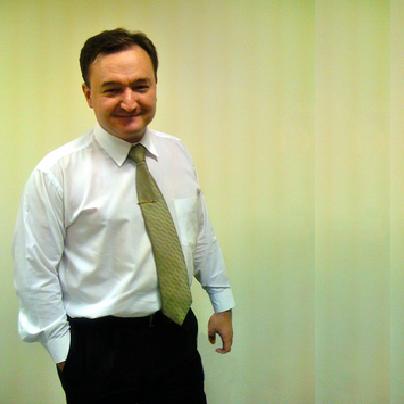UK unveils its first Magnitsky sanctions
Chris Hamblin, Editor, London, 7 July 2020

The UK has acquired its own Magnitsky sanctions regime, a means of ordering the freezing of assets of people whom the Government believes have committed infractions against human rights around the world. On the first list are the alleged killers of Sergei Magnitsky himself (pictured). Importantly, HM Government has resolved to impose the new regime on all the UK's colonies.
European Union financial sanctions will continue to apply in the United Kingdom until 11pm on 31 December. It seems likely that the British Government has opted for Magnitsky sanctions as both a popular choice of policy and as a way of asserting its nascent independence from EU decision-making in this area.
HM Government refers to financial sanctions which relate to specific countries or terrorist groups as ‘regimes.’ The US and Canada have Magnitsky-style legislation and Australia is considering it as well. About one-quarter of humanity lives under one or other of America's sanction programmes.
Sergei's story
Between 2007 and 2008 Sergei Magnitsky, a young Russian tax lawyer, exposed the theft of US$230 million committed by tax officials in Russia's own Interior Ministry. Although others who knew about it left Russia in fear of their lives, Magnitsky stayed on to take a stand for the rule of law.
Russian authorities arrested Magnitsky in 2008 on trumped-up charges of tax evasion and, in a particularly Kafka-esque twist, the very tax investigators that Magnitsky had exposed were the ones who turned up to arrest him. The Public Oversight Commission, a Moscow-based charity, found that while in detention Magnitsky was subjected to physical and psychological abuse amounting to torture. He developed abdominal pain and an acute bladder inflammation but his jailers withheld the medical treatment that he needed. Eventually he was transferred to another facility, ostensibly to receive medical care, but instead he was handcuffed and beaten to death by riot police with truncheons. He died on 16 November 2009, aged 37.
The European Court of Human Rights found that Russia had violated Magnitsky's human rights by torturing him in prison and refusing to hold an effective investigation. Nobody involved has ever been brought to justice. Indeed, some have been promoted and even decorated with medals. The only person ever prosecuted was Sergei Magnitsky himself after his death, in Russia's first-ever posthumous trial. Now 25 Russian names are on the sanction list in connection with Magnitsky's demise.
What's on the list
Speaking in the House of Commons yesterday, Foreign Secretary Dominic Raab made the first 'designations' (entries on the list) in accordance with the new regulations, imposing sanctions on people involved in some of the most notorious human rights violations in recent years. The first 25 designations, he said, will cover those involved in the torture and murder of Magnitsky. 20 designations will also include those responsible for the brutal murder of the writer, journalist and Saudi dissident Jamal Khashoggi. There will be two designations of people who levelled violence on the Rohingya (Muslim) population in Burma/Myanmar, plus two for organisations that bear responsibility for the enslavement, torture and murder that takes place in North Korea's system of gulags where hundreds of thousands of prisoners have perished over the last 50 years.
As can be seen from this collection of targets, these sanctions can be invoked in relation to any supposed atrocity committed anywhere in the past and to perpetrators who have never had anything to do with the UK. In the fullness of time, the new regime promises to become a gigantic one.
Targeted sanctions are at their most effective when the sanctioning country co-ordinates its efforts with other countries, so Raab plans to work closely with the UK's partners in the 'Five Eyes' surveillance dragnet. (These consist of the UK, the US, Canada, Australia and New Zealand. A 'sixth eye' - Israel - is also sometimes mentioned.)
Raab added: "Today we have also published a policy note that sets out how we shall consider designations under these regulations for maximum transparency. The legislation will ensure that due process will be followed in relation to those designations and that will reflect the process rights contained in the Sanctions and Anti-Money-Laundering Act 2018."
Sanction regimes in the UK
The UK's financial sanction regimes, some of which are to do with subjects and not countries, are listed here as follows.
Afghanistan, Belarus, Myanmar (Burma), Burundi, Central African Republic, Chemical Weapons, Cyber-Attacks, Democratic Republic of the Congo, Egypt, Global Human Rights (the new regime), Republic of Guinea, Republic of Guinea-Bissau, Iran (human rights), Iran (nuclear proliferation), Iraq, ISIL (Da'esh) and Al-Qaida organisations, Lebanon and Syria, Libya, Mali, Nicaragua, Democratic People’s Republic of Korea, Somalia, South Sudan, Sudan, Syria, Terrorism and terrorist financing, Tunisia, Turkey, UK freezing orders, Ukraine (Misappropriation and Human Rights), Ukraine (Sovereignty and Territorial Integrity), Venezuela, Yemen and Zimbabwe.
An explosion of designations ahead?
The British initiative promises to begin a process in which HM Government orders the freezing of assets in the UK belonging to thousands of politicians, government functionaries and politically-connected HNWs from all over the world. Yesterday's Parliamentary debate, featuring contributions from MPs still in 'lockdown,' made it evident that Dominic Raab is thinking of targeting the top echelons of China's ruling Communist Party in the next wave of 'designations.' The debate also made it evident that many politicians are baying for Saudi blood as well. Any infraction against human rights, however far in the past and however foreign its victim, is a fair pretext for a designation under this regime.












